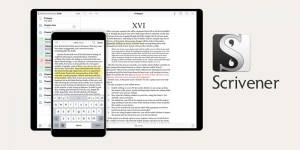There’s no way around it, academic conferences are expensive; the conference fee alone can often be more than the cost of flying to the host country in the first place! Knowing this can be particularly annoying because any advice you hear about PhD student life and being an early-career/student scientist probably includes going to as many conferences as possible. But unless your research project funding comes with a healthy conference/travel budget, it can be tough finding the funds to go to many or even any conferences. So this naturally leads to the question: are academic conferences worth it?
I understand your frustration. The advice is good: academic conferences are a great opportunity to see what’s happening on the forefront of your research field and are a great opportunity to meet people within your discipline of interest because you can just walk right up to them and introduce yourself, and you’re not going to get ignored (unlike your email to them, which is likely still sitting unread in their inbox along with 100 other identical emails). But are these opportunities really worth the investment? That depends a lot on your financial situation and your goals. Here is my advice to help you decide.
Work out the real cost of going
What I mean is work out the cheapest way you can attend including transport and accommodation. Know that the conference registration cost is not necessarily what you have to pay. You can probably attend for cheaper, but don’t forget to consider the costs of flights/trains/taxis and your hotel in your budget. Knowing how much it’s ACTUALLY going to cost you is the first step in deciding whether to go or not. Don’t give up until you’ve explored all your options, and budget carefully.

You should be aware that there are almost always student rates for conference registration fees. There are also member discounts available. If you’re not a member of the society hosting the conference, consider becoming one. Sometimes the discount on the conference price for members is larger than the membership fee itself and there can be other benefits of being a member too such as discounts on publication fees or more networking opportunities.
Have a look at the conference programme and consider just attending a few select day or days when the talks you’re most interested are actually taking place. There are usually day rates for far cheaper than paying for the entire session, and attending one or two days might be better than not attending at all.
Talk to your university
Even if your research project doesn’t come with specific funding for conference travel, the university may be able to offset the cost of attending the conference for students, or perhaps connect you with a professor or another student who is attending with whom you might be able to cost-share. Most universities offer some level of competitive funding specifically for conferences which you can apply for; you’ll stand the best chance here if you’re also presenting a paper either as a poster or as a podium talk.
It’s certainly worth you contacting the conference organisers themselves and explaining your situation. Many conferences have sponsorship attendee tickets which they may or may not advertise. These are held in reserve for people just like you who would benefit from attending but who can’t afford to.
Consider alternative options for your accommodation
The conference is probably associated with a hotel and a “special rate” for rooms there during the conference dates but it’s still likely to be expensive. Consider sharing rooms with a colleague or looking at hotel options slightly further away from the conference venue. It can sometimes work out much cheaper to find accommodation further away and get a taxi to/from your hotel than to find something within walking distance. Also consider Airbnb as an alternative and even staying with someone you know in the city if that’s an option available to you!

Be clear on your goals for attending the conference
Define for yourself what you’re hoping to get out of this experience. If your goals can only be achieved by attending this conference, that is a very strong reason to put up with the financial cost of doing so. Knowing specific goals going in will help you achieve those, and therefore feel like your money was well-spent when it’s over. For example, are there specific people you want to meet in person? Do you know if they’re planning on attending? That’s a great reason. Are you trying to get a good understanding of where your field is headed? This is a great opportunity for that. Are you trying to sample a lot of different sub-disciplines to figure out where your interests lie? That’s another strong reason to go.
If you make the decision to go, buy your tickets early!
The earlier you buy your conference registration, reserve your accommodation, and buy your train/plane ticket the cheaper it will all be. Remember that most conferences offer cheaper ‘early-bird’ registration for those that sign up early on.
In my opinion, academic conferences are great. Go if you can; I’ve been to many across the world and I think they’re generally worth it. You’ll meet new people, many that may be PhD students themselves and hopefully make new friends. But remember that every discipline and every society has their own conference. There are also national ones that happen between the big annual international conferences that are generally cheaper and probably closer to you; you’ll probably see a lot of familiar faces at both so choose wisely – it’s unlikely that you’ll have a good reason to attend them all!
So, you’ve decided you’re going to the conference. What should you wear?
Whatever you want! Within reason! In general, you’ll find the vast majority of academic conferences are quite relaxed in terms of the expectations of dress code. You’ll see the usual mix of presenters and senior professors in suits but you’ll also bump into enough examples of ‘serious’ academics walking around the poster sessions in shorts if the conference venue’s near the beach! If you’re presenting a poster or giving a podium talk then certainly consider ‘suiting up’ but otherwise my advice would be to keep it smart-casual in something you’d be comfortable spending the entire day in.
How do you talk to people at the conference?
You’ve just listened to the senior author of all the papers you’ve been reading give a fantastic presentation to a packed room. You want to say hello but not sure how they’ll react – don’t worry! This is a natural feeling to have and I’ve been in the same position many times. Just know that presenters expect this. It’s common practice for people to approach a speaker after their presentation and ask them questions or chat about their work. It’s also totally common for students to approach principal investigators to start a conversation about coming to their lab. My two pieces of advice are this: firstly, have a networking card or something similar to give them (and others) with your name, contact details, and discipline or current educational status/job position on it. Secondly (and in my opinion most importantly), just prepare a small elevator speech beforehand so you don’t get flustered and don’t waste their time (or feel like you’re wasting their time, actually).

My other advice when attending a conference is to make sure you pace yourself. Many conference schedules are pretty packed – at the large meetings there can be about 4000 talks presented throughout the week, about 30 going on at the same time every 10 minutes. Additionally, there are constantly poster sessions up to browse and optional evening workshops. There is no way that you can take in all of this content and it actually be useful; the most likely outcome is you’ll end the week exhausted, realising you haven’t enjoyed what should have been a fun learning experience.
The solution? Plan ahead. The minute you get the full conference programme, sit down with it and make yourself a timetable, identifying the talks that you definitely want to attend. Then, fill in some “would like to attend” events around these, but don’t pack your schedule. Leave some time for relaxation and reflection, getting food (VERY important) and maybe even for taking a quick nap back at the hotel!
Don’t worry. If you miss a talk, the papers will come out sometime later and you can just read them then. You’ll have the names and institutions of everyone presenting in the conference programme so you could always email them later if needed.
Conclusion
If you decide to go to that next conference, then enjoy it; I think it’s important to experience it at least once during PhD student life. Remember though: don’t rush, get enough sleep, eat enough food, make notes, take photos and have fun 🙂











